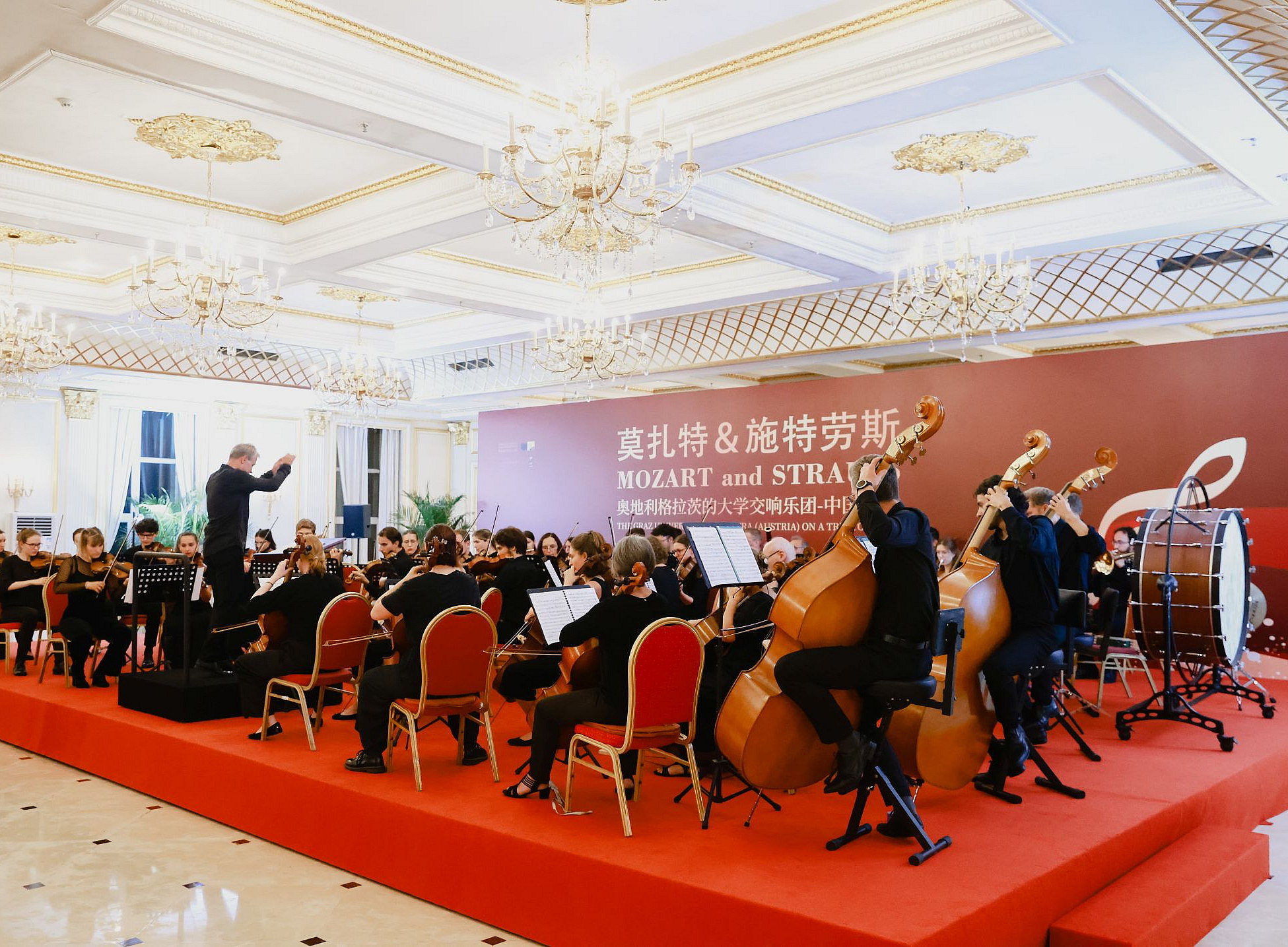To achieve excellent research results, a university must not only have the best scientists, but also good international contacts. The aim of a recent Rectorate delegation trip to China was to intensify these contacts. Accompanied by the head of the Confucius Institute, Wan Jie Chen, Rector Peter Riedler and Vice-Rector Mirelle van Poppel travelled to Shanghai and Beijing. During a visit to the East China Normal University, the existing cooperation was further intensified. Subsequently, visits were made to other universities in the country and the scientific exchange in the fields of ‘virtual learning space’, ‘European Studies’ and ‘ Chinese Studies’ as well as TCM and pharmacy was intensified.
The concerts by the Graz University Orchestra, which was also part of the Chinese delegation, were a special event for the hosts. In front of an audience of 1,000 in Shanghai, the orchestra performed a piece of traditional Kunqu opera that had been specially adapted for the collaboration, together with musicians from the East China Normal University. The exchange between science and culture met with great approval from the numerous guests, including rectors and professors from the East China Normal University and the East China University of Political Science and Law.
The second performance took place in Beijing just four days later. Around 500 listeners attended the event at the Chateau Laffitte Hotel, whose concert hall is modelled on a European castle. The concerts not only served to present the Graz University Orchestra abroad, but also to maintain and expand academic and cultural relations between China and Austria.
Research on biobased plastics
A visit by a delegation from Beijing Forestry University (BIFU) to the University of Graz just a few weeks after the delegation trip was also characterised by a strong focus on research. The scientists from the People's Republic of China were particularly interested in the activities of the University of Graz in the field of ‘green chemistry’.
This was followed by a tour of the university's laboratories, where research into lignocellulosic biomass (wood chips and shavings) is carried out. Prof. Zhuohua Sun, a member of the BIFU delegation, gave a presentation on his expertise in the field of heterogeneous catalysis. The successful visit paves the way for future collaborations in the field of sustainable chemistry and overarching projects on the circular economy. Subsequently, an agreement was signed between the University of Graz and Beijing Forestry University to establish a joint research laboratory.
